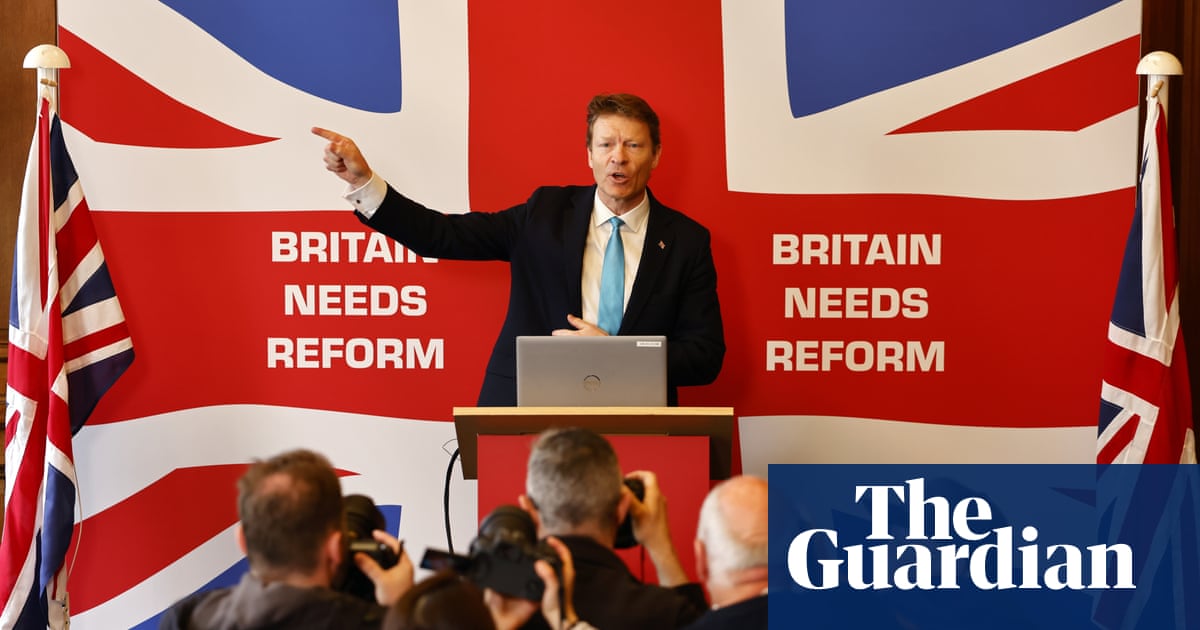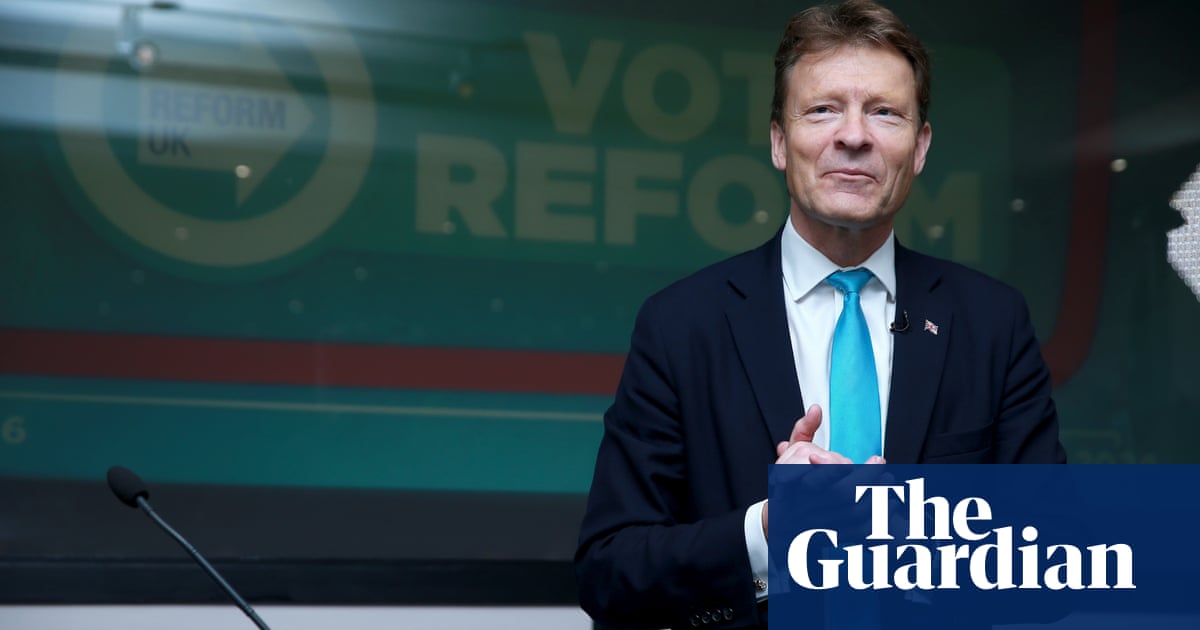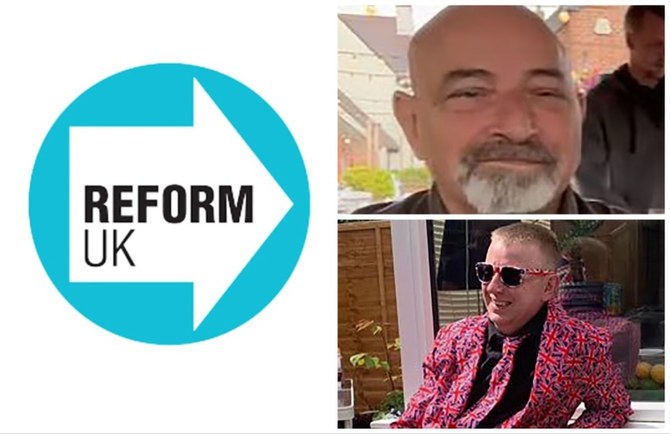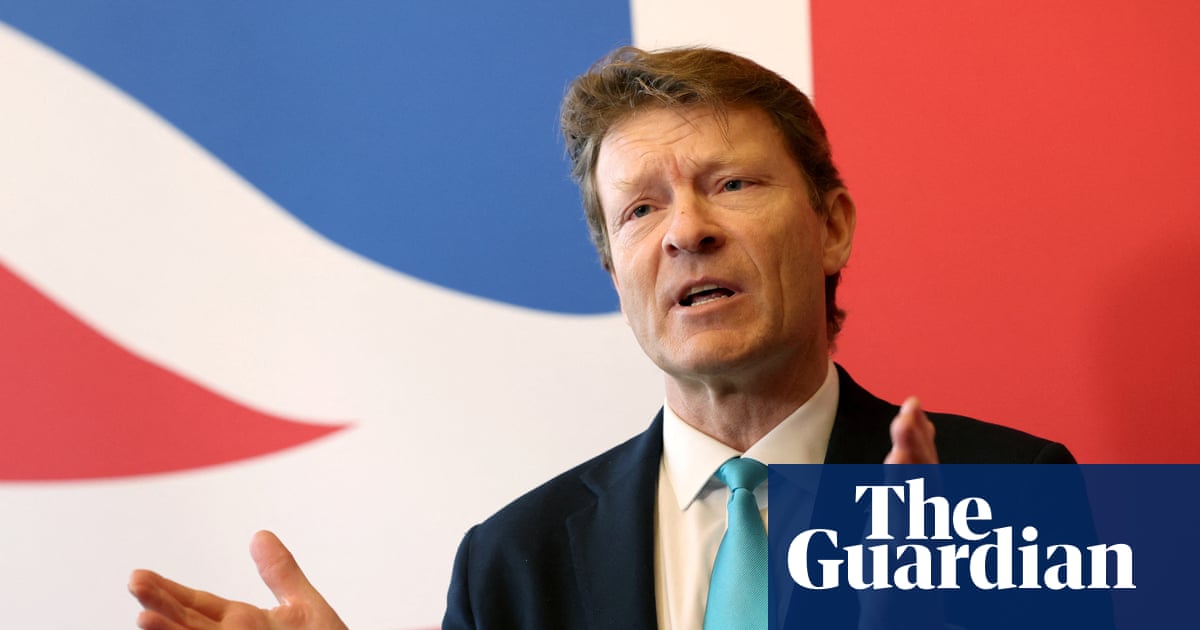
Reform UK will seek to capitalise on its momentum in the polls and third-place finishes in two recent byelections by launching new policies and new candidates at a rally in Doncaster on Saturday.
After the havoc wreaked on Ukip and the Brexit party by candidates who had to be suspended over racist and offensive comments, a vetting team at the rightwing populist party is trawling through would-be MPs’ past social media output.
This week Reform fired its Henley and Thame candidate after he compared transgender and non-binary people to Hitler and called Gay Pride a “sin” in online posts.
But allegations the party is a haven for conspiracy theorists and extremists persist as it aims to try to maintain electoral momentum, polling 13% in a YouGov voting intention survey on Thursday.
An analysis by the Guardian of Reform UK’s already selected candidates also indicates that work is being done to scrub online pages of those who have made controversial comments, while many remain on the party’s website.
They include Tony Glover, the candidate for Poplar and Limehouse, who falsely states in a profile that the Labour MP Apsana Begum “has aligned herself with extremist causes like Hamas”.
Begum said: “Such false and defamatory allegations are not only Islamophobic but further add to the situation I am facing with regard to increasing far-right threats to my safety – including death threats.
“The rise in Islamophobia in the UK is alarming. I will always stand up for my constituents – multiracial, multicultural and of all faiths and none – against such toxicity.”
Alongside veterans from the party’s previous Brexit-era predecessors, Reform’s candidates also include those railing against “globalists”, a term regarded elsewhere as an antisemitic trope. Jewish groups have condemned Nigel Farage for using the term although Reform UK sources said they “reject the idea that being uncomfortable with the Davos agenda is in any way antisemitic”.
Other Reform UK candidates on the party’s website warn about the “great reset” – an abstract term that emerged out of the World Economic Forum but which has taken on a life of its own among conspiracy theorists.
In other cases, there have been deletions of candidate profiles on the party website, including one who had described climate breakdown as “benign”. A separate candidate, Robert Hall-Palmer in Newark, echoed the Reform UK leadership’s hostility to net zero, which he described as “a dangerous false ideology that can only bring harm”. But in an earlier version of his profile he said the role of human activity in the climate crisis was “overplayed”, falsely claimed the United Arab Emirates questioned the science of climate change at Cop28, and backed something he called “Russia’s theory on hydrocarbons”.
Reform’s leader, Richard Tice, sacked the Henley and Thame candidate this week and said on GB News that candidates were being strictly vetted: “They’ve all been told, don’t do this stuff. And if you do, you’re going to be fired. It’s as simple as that.”
The rally in Doncaster comes days before Thursday’s byelection in Rochdale, where the party is hoping its candidate – the former Labour MP Simon Danczuk – will make a strong showing amid Labour turmoil. Reform’s honorary president, Farage, had by midday on Friday yet to be announced among the speakers. Days earlier, he had appeared alongside the former Tory leader Liz Truss at a rightwing conference in the US, encouraging speculation that he could ultimately rejoin the Conservative party.
Fresh research released on Friday by the More in Common thinktank underlined how it is Farage, and not Tice, who is attracting voters to Reform. The polling also showed that, unlike other voter cohorts, the single issue of immigration was why people supported Reform.
For six-in-10 Reform UK voters, its policies on immigration were a top reason for voting for that party. A quarter of Reform UK voters back the party out of support for Farage – while just 7% are doing so to support Tice.
In contrast to Reform’s policies on lockdown and climate change, the polling also revealed these priorities were firmly at the bottom of a list of reasons for voting Reform and many were pro-vaccine. A fifth of its voters also felt that tackling the climate crisis should be a top priority for the next government.
Nevertheless, the party remained a threat to the Conservatives and More in Common’s UK director, Luke Tryl, said its decent polling performance had overwhelmingly come from disillusioned 2019 Conservative voters.
“But Reform standing down at the general election in some sort of deal like the one the Brexit party did with Boris Johnson would only benefit the Conservatives by a small amount. If Reform was not an option, only a quarter would go back to the Conservatives,” he said.












